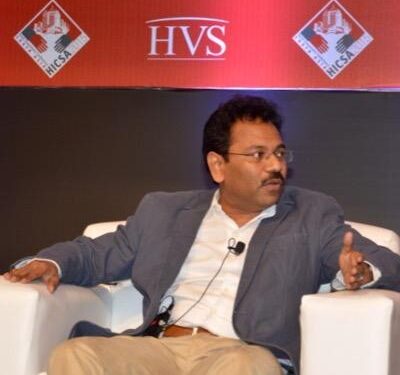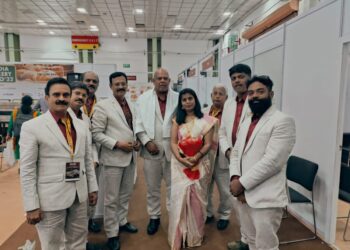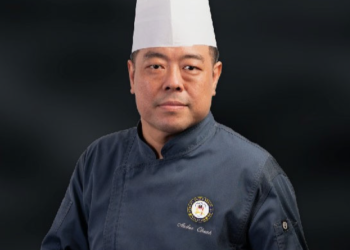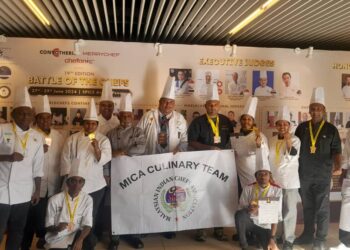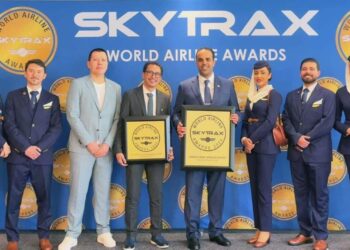
-Ayshwaria Lakshmi
Suman Billa (IAS), Dir, Technical Co-Operation & Silk Road Development (UNWTO) in an online discussion conducted by FHRAI appealed to the industry leaders to work on developing domestic Tourism can be the turning point for our Indian Tourism and Hospitality sector.
He pointed out that around 11 million tourists visit India, but around 26 million Indians go out for vacation. The expense of theirs on these trips is estimated to be around 25 billion.“ With the travel restriction in place we can use this critical information and survive with least pain by negotiating on how to create a domestic market to retain this purchasing power within the country,” said Suman. “India has a good position of having people with critical-mass purchasing power and traveling abroad, is easy to divert as compared to countries like the Maldives which is entirely dependent on tourism.”
The UNWTO estimates that the international tourist arrival would see a steep drop of anywhere in between 60 to 80 percent. This plunge would be difficult for the business to have a contingency plan nor for the government to handhold and navigate without any pain, Suman adds. From a Historical perspective, during SARS the fall was 0.4 percent, and the Global crisis contracted by 4 percent. Numerically, this would translate into drop-in International Tourist arrivals by 1 billion and Tourism and sports by 1 trillion. “What the industry is facing is an unprecedented one. We have never faced a challenge as big as this,” said Suman. The most important figure is the job loss to be expected between 100 to 120 million. The closer to the end of the year, 120 million looks plausible, he adds.
Suman listed out four elements that he felt where critical to betide over this crisis. Firstly, to have a harmonious and strong gatekeeping policy. “The state and the center are looking into it. The sector should also look into how to structure policy response across the state that’s simple and easy so people do not put off traveling,” he added. Secondly, he mentions the elements that go into gatekeeping. With the testing technology improving each day, adding in testing along with safety and hygiene protocols around all the touchpoints would ensure the safety of the tourist and build trust. “It is essential to communicate and reassure the same. We have to do some amount of branding and how we package this protocol to communicate to the consumer, we should think about,” Suman suggested.
He tells the audience that the recovery to the sector should start with a focus on certain destinations. “India is a large country and to say the entire country is safe to travel, I think would take some effort and time,” Suman said. To begin this, identifying a few key destinations after consulting the state government. These would later be worked to ensure complete compliance of the protocols. If this could be done successfully in these locations, then the same can be done for the other, “bring in a strong message for our domestic market and international market,” he adds.
The last element and most important one is to build a good synergy with the aviation sector. India has a robust and strong aviation sector but the synergy between these two is not good unlike the Middle Eastern countries, where the aviation packages and offers competitive pricing and convenience. “If we are able to do these well, we can come out well,” said Suman.
Tourism would not be the same post-COVID. It is going to move towards sustainability, critical issues the sector would have to face and environmental cost will be weighed in by the people. Hotels and restaurants should look at sourcing from the local community. It should also look at zero food miles and zero carbon emissions. On the consumer side, they would look for more of a meaningful journey.
Suman points out that undertaking this profitless volume would not be beneficial if the quality product is not delivered and priced accordingly. “This is where the youngsters need to come in,” he adds.
Regarding the job perspective, he advised those looking for jobs to not be exercising choice in this period but to take up any job offered. They should have a good skill set and attitude. Earlier, the recruiters wanted those with skills but now they want a person who has the “Can Do” attitude and is also a team worker.
Most importantly this pandemic has brought about the need for multitasking. In the current situation, those who have jobs are those who have the ability to do more than one job. To sustain work or get new employment, the seeker should constantly upskill their talent.
“This downtime can help you upskill yourself that when you are back into the job market. You can bring in more than what you would offer before,” Suman advises. “With innovation as the key to sustainably, a lot of youngsters have a big advantage here. A business would take in a youngster who bring innovation solution to the table and able to hold the enterprise in a direction that embraces the change.”
He finishes his speech by highlighting that this is a temporary lull and it would cause a little pain down the line. The challenge here would be to make sure the growth is in a sustainable and responsible manner. When the sector bounces back, it should not just be the sector but the community too.
The discussion held on the topic of Hospitality Education: Adapting to COVID-19’s New Normal also had people from various parts of the country and with different backgrounds participated to talk about the challenges faced by the institutes and the sector along with the solutions to tackle these unexpected and unpredictable situations.

